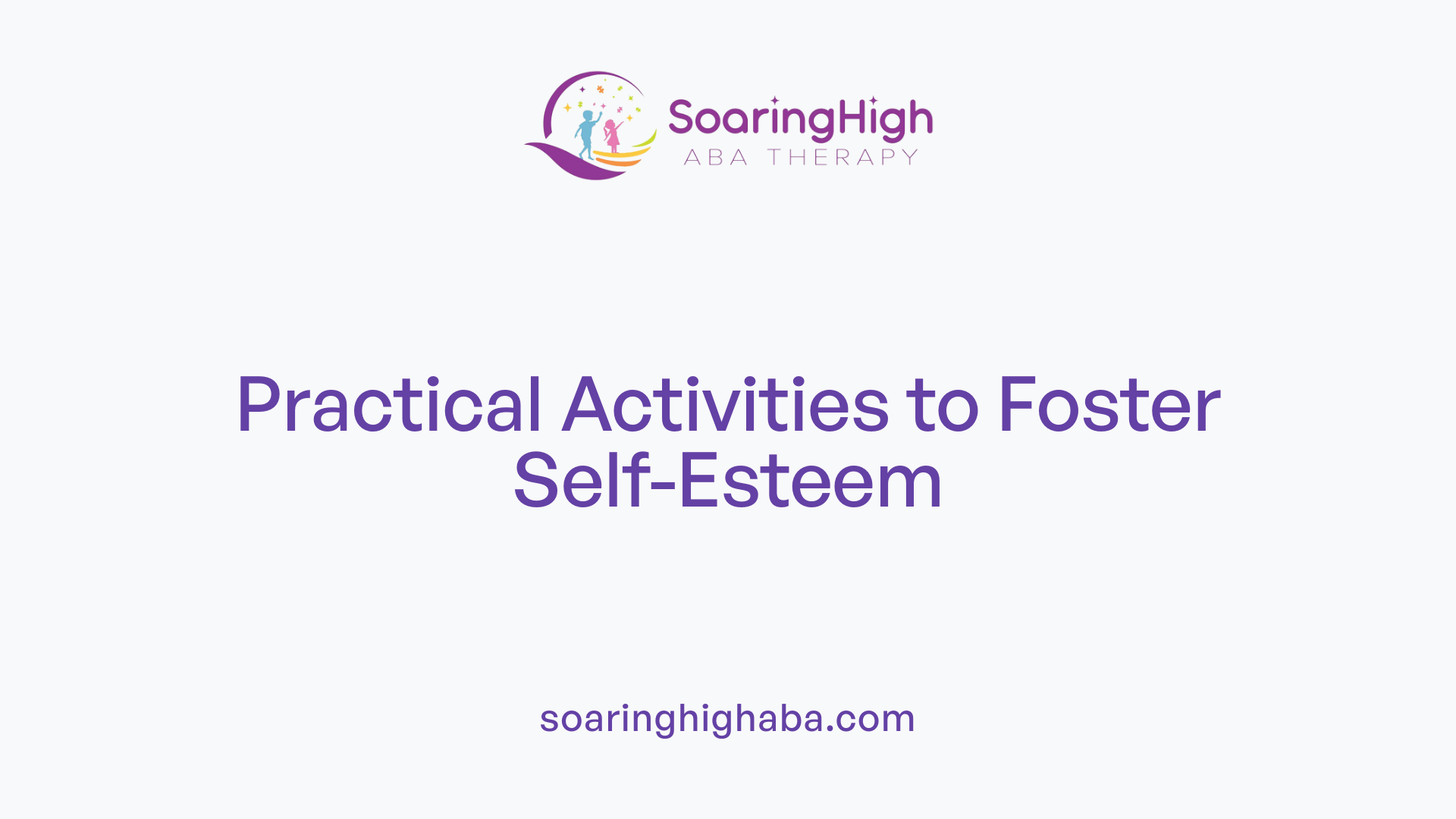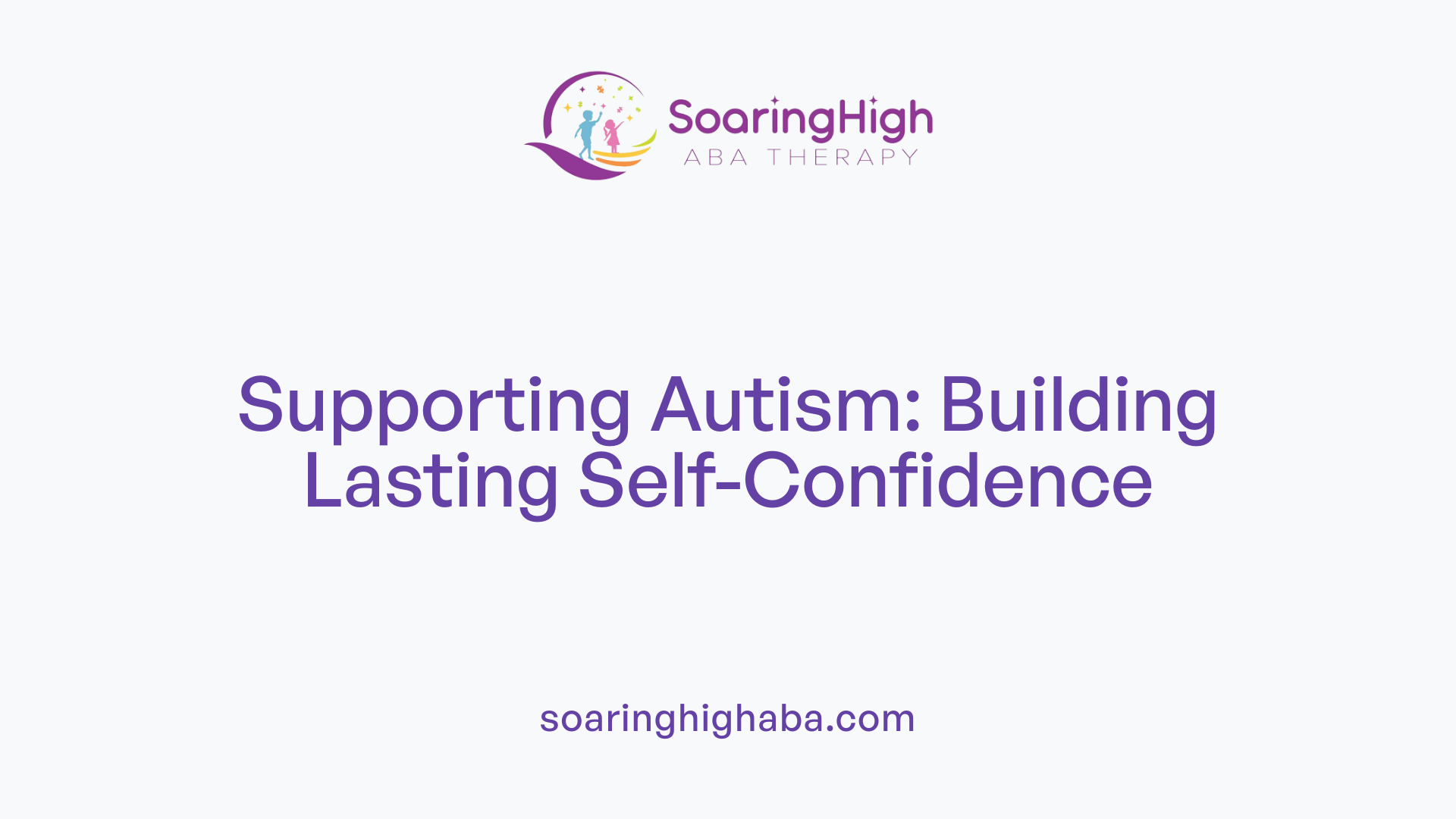Empowering Children with Self-Confidence Using ABA Strategies
Applied Behavior Analysis (ABA) is a proven, evidence-based approach that significantly contributes to enhancing a child's self-confidence. By systematically teaching essential skills, providing structured routines, and reinforcing positive behaviors, ABA fosters independence, emotional resilience, and social competence. This article explores how ABA strategies can be effectively utilized to boost self-esteem and confidence in children, especially those with autism, through practical methods, targeted activities, and comprehensive interventions.
The Foundations of Confidence: ABA's Role in Skill Development
How does ABA therapy build communication skills?
ABA therapy enhances communication by breaking down language into manageable parts. Techniques such as modeling, reinforcement, picture cards, gestures, or devices like PECS help children express themselves. These methods support children with speech challenges to improve their verbal and non-verbal communication, which boosts their confidence in social settings.
How does ABA teaching social interaction?
Social skills are developed through guided practice, role-playing, and positive social experiences. Children learn essential skills like understanding social cues, taking turns, sharing, and responding appropriately. These interactions foster peer relationships and social confidence.
In what ways does ABA promote daily living skills?
ABA targets self-care and daily activities such as dressing, brushing teeth, and toileting. Using structured teaching and reinforcement, children gain independence in these routines. Mastering basic life skills builds their confidence to participate more fully in everyday life.
How does ABA encourage independence and self-efficacy?
By setting realistic, small goals and celebrating successes, ABA promotes a sense of achievement. Children learn to do tasks on their own, like self-care or problem-solving, which nurtures resilience and belief in their abilities.
Additional insights into ABA's impact
| Skill Area | Approach | Effect on Confidence |
|---|---|---|
| Communication | Picture cards, modeling, reinforcement | Improves self-assurance in expressing needs |
| Social Skills | Social stories, peer interactions, role-play | Builds trust and peer relationships |
| Daily Living Skills | Task breakdown, structured routines | Fosters independence and self-reliance |
| Emotional Regulation | Teaching coping strategies, recognizing feelings | Encourages resilience and emotional control |
Overall, ABA therapy creates a supportive environment where children learn new skills systematically. This approach encourages independence, reduces anxiety, and helps children feel more confident in navigating daily life and social interactions.
Implementing Clear Goals and Routines for Confidence Building

What techniques and methods in ABA can boost self-esteem in children?
ABA therapy enhances self-confidence by employing various effective strategies. Techniques such as modeling appropriate behaviors, using positive reinforcement, and fostering social skills are central to this approach.
Tailoring interventions to meet each child's unique strengths and needs ensures that reinforcement feels personal and impactful. Celebrating small successes helps children recognize their progress, boosting their belief in their abilities.
Activities that encourage self-reflection, like creating affirmations or identifying personal strengths, further support positive self-perception. Additionally, teaching essential life skills such as problem-solving and promoting independence empower children to manage daily challenges confidently.
Implementing structured social skills programs—often involving group activities, role-playing, and peer modeling—helps children develop essential social abilities. These skills enable better interactions at school and in community settings.
Parental involvement plays a vital role. When caregivers reinforce these strategies consistently across different environments, it fosters a stable foundation for improved self-esteem. Overall, ABA's personalized and structured approach creates a nurturing space where children can grow in confidence and resilience.
Positive Reinforcement and Self-Efficacy
How can ABA interventions support children in developing self-esteem?
ABA therapy is instrumental in fostering self-esteem through deliberate use of rewards and praise. When children achieve small, manageable goals, therapists often reinforce these successes with positive feedback such as verbal praise or tangible tokens. This reinforcement encourages children to repeat confident behaviors, associating effort with rewarding outcomes.
Therapists also focus on helping children master new skills, from communication to daily living activities. Celebrating these accomplishments builds a sense of competence and independence. For example, completing a task like buttoning a shirt or initiating a conversation enhances feelings of self-efficacy.
Encouraging effort is equally vital. Reinforcing persistence, even in the face of difficulty, teaches children resilience and perseverance. Phrases like “Great job trying again!” or “I love how hard you worked!” motivate children to keep practicing.
Activities such as role-playing, arts and crafts, and social games create a nurturing environment. They allow children to practice skills with support, boosting their confidence. Visual supports, clear instructions, and consistent routines make learning predictable, which reduces anxiety and fosters a positive self-image.
Long-term, ABA interventions help children recognize their abilities, manage emotional challenges, and develop a healthy self-esteem. This foundation promotes not only confidence but also resilience to face future challenges.
| Reinforcement Type | Example | Purpose |
|---|---|---|
| Praise | “Great job!” | Boosts self-esteem |
| Tangible Rewards | Stickers, tokens | Encourages repetition |
| Social Reinforcement | High-fives, smiles | Builds social confidence |
Creating an environment where effort is celebrated and success is recognized helps children develop a resilient and positive sense of self. Through structured, consistent support, ABA therapy nurtures confidence that lasts beyond therapy sessions, empowering children to navigate daily challenges with assurance.
Activities and Strategies to Foster Self-Confidence

What practical approaches and activities can foster self-confidence through ABA?
Practitioners can incorporate a variety of engaging activities to boost self-confidence in children undergoing ABA therapy. One effective method is focusing on activities that showcase the child's strengths and acknowledge their achievements. Using positive reinforcement such as praise, tokens, or small rewards encourages children to repeat desired behaviors and associate effort with success.
Creating a supportive environment is equally essential. This involves employing uplifting messages, positive language, and establishing a predictable routine that helps reduce anxiety and fosters a sense of safety and accomplishment.
Social skills groups are an excellent platform for practicing interaction skills in a controlled setting. Through role-playing, group games, and collaborative projects, children can learn social cues, sharing, taking turns, and emotional regulation. These groups provide safe spaces for children to develop communication skills and build peer relationships.
Engaging children in extracurricular activities like sports, drama, or science clubs promotes exploration and independence. These activities not only develop new talents but also boost self-esteem and social confidence.
Additionally, activities like art, music, cooking, or problem-solving tasks allow children to learn from mistakes and build resilience. When these activities include goal-setting and self-advocacy opportunities, they empower children to take initiative and develop a sense of control over their progress.
In summary, combining structured play, social skill practices, creative arts, and independent tasks within ABA frameworks significantly contributes to fostering confidence and resilience in children.
Building Self-Esteem Through Skill Acquisition and Social Opportunities

What are the key insights into how ABA can build skills that contribute to a child's self-confidence?
ABA therapy is instrumental in developing self-confidence in children with autism by enabling them to acquire crucial life skills through a structured approach. Therapists break down complex behaviors like communication, social interaction, and daily living activities into manageable, small steps, allowing children to experience success at each stage.
Positive reinforcement, such as praise or reward systems, encourages children to repeat desirable behaviors, reinforcing their efforts and fostering a sense of achievement. As children see their progress, their self-esteem naturally improves, motivating them to take on new challenges.
Parental involvement plays a vital role; when caregivers are trained to implement ABA strategies, they can create consistent, supportive environments beyond therapy sessions. This consistency helps children feel secure and confident in their abilities.
Engaging activities like role-playing, social stories, and creative projects facilitate social skills development and emotional recognition. These activities provide safe spaces for children to practice and succeed, further building their confidence in social settings.
Fostering strengths-based approaches—such as focusing on a child’s interests, like puzzles involving numbers or exploring dinosaur books—helps children develop a positive self-image. Recognizing and celebrating these strengths encourages perseverance and resilience.
In summary, ABA fosters self-confidence by establishing a foundation of achievable goals, reinforcing progress with positive feedback, and creating opportunities for success and self-expression. This comprehensive approach nurtures a resilient and autonomous mindset in children, helping them thrive socially and emotionally.
Supporting Children with Autism in Developing Self-Confidence

What strategies can support children, especially with autism, in developing self-assurance through ABA?
Building self-confidence in children with autism is a fundamental part of ABA therapy. One of the most effective strategies is the use of positive reinforcement. This involves praising efforts, providing tangible rewards, or offering verbal affirmations when children demonstrate a new skill or show perseverance. Such encouragement helps children associate their efforts with positive outcomes, reinforcing behaviors that promote independence and self-esteem.
Structured routines are also vital. Clear, predictable schedules reduce anxiety and help children feel secure in their daily environment. Breaking tasks into manageable steps allows children to succeed gradually, which cultivates a sense of accomplishment and boosts their confidence.
Focusing on children’s interests and passions can significantly enhance their engagement and self-expression. Incorporating activities related to their hobbies—such as music, drama, or puzzles—can foster social interactions and emotional expression. These interest-based activities support skill development in communication and social settings, further strengthening self-assurance.
Teaching emotional regulation is another important element. Strategies like mindfulness, deep breathing, or sensory breaks help children manage feelings of frustration or overwhelm. As they learn to cope with their emotions effectively, their resilience and confidence grow.
Parental involvement is essential. Parents and caregivers can reinforce skills at home through consistent practice, celebrating small successes, and creating a nurturing environment. Combining structured therapy sessions with ongoing support at home helps reinforce self-belief and independence.
Overall, ABA strategies that emphasize positive reinforcement, structured routines, personalized interests, and emotional regulation work together to develop lasting self-confidence in children with autism. Through patience, consistency, and love, these approaches foster resilience and empower children to thrive in various aspects of life.
Nurturing Confidence for Lifelong Growth
The journey to building self-confidence in children through ABA is rooted in structured, positive, and personalized interventions. By establishing predictable routines, setting achievable goals, and reinforcing successes, caregivers and practitioners can create an environment where children feel valued and capable. Incorporating social skills training, creative activities, and opportunities for independence further enhance self-esteem, helping children face daily challenges with resilience. Parental involvement and a collaborative effort among educators, therapists, and families are pivotal in sustaining progress. Ultimately, ABA strategies not only foster immediate skill acquisition but also lay a strong foundation for lifelong confidence, well-being, and success.
References
- How ABA Therapy Builds Confidence in Children with Autism
- 7 Surprising Benefits of ABA Therapy for Kids You Need to Know
- Building Self-Esteem in Children With Autism
- Fun Ways to Boost Kids' Confidence - Camen Behavioral Services
- Parent's Guide to ABA Therapy: Building Skills, Confidence, and ...
- The Secret to Building Confidence in Kids with Autism
- Building Self-Esteem in Kids with Autism - Childwise ABA





































































































